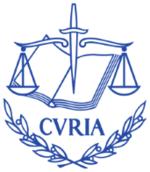
Europeans are a scientific mess in 2018.
The home of the Enlightenment and Humanism is desperately trying to claim rationality about food, energy, and medicine while embracing nature-based mysticism and using wedge politics to get their way. They think America is too religious but have their own new theism; a "Frankenfood" Devil and the Resurrection of the anti-vaccination movement. They claim concern about energy emissions but buy energy from fossil fuel plants in the former USSR. They pretend to buy organic food because Russia claims it is and don't do the inconvenient math to know that's impossible.
And that maddening hypocrisy is being reflected in their courts.1
Europeans, who overwhelmingly claim to accept the science consensus on climate change, deny a far stronger consensus on biotechnology and believe GMOs are a crime against nature, because a gene has been precisely modified by scientists. Yet if high-energy cosmic rays randomly break chromosomes into pieces that reattach (randomly) or (randomly) create genes that didn't exist before, including harmful ones, that is okay because it's natural.
Yes, nature did mutagenesis first, then humans did it in a lab. And there are 2,000 strains of plants, many of them considered organic, that were created using mutagenesis - it is genetic modification using blasts of ionizing radiation and mutagenic chemicals and hoping something good happens.
Who in their right mind would think that is superior to precision control? Europe.
In a recent ruling, the Court of Justice of the European Union abandoned any pretense that science matters in scientific issues.2 They say any mutagenesis not done by random cosmic rays is the same as a GMO -- ignoring that GMO is solely a legal term, a name for a patented technique. RNAi and CRISPR have nothing in common with a GMO, yet a court just said it is the same thing and therefore under the control of their GMO Directive.
Wait, but thousands of plants were created using human-controlled mutagenesis, including organic foods. Since those were not "natural", they are no longer organic, right? No, they are. The court, in what should be called the BASF Exemption (because of that European company's $75 billion in revenue -- compare that to Monsanto's $14 billion) decreed that genetic modification done before GMOs and with "a long safety record" would be given a free pass.
In other words, BASF products are okay. No other product can be allowed to establish "a long safety record" even though GMOs and now CRISPR are far more precise than mutagenesis, which remains under an organic label health halo.
The European Court of Justice, established in 1952, constitutes 28 elected Judges and 11 Advocates-General. The Advocates-General exist to provide independent, impartial opinions on cases before the court. In this instance the Advocate General said it was a mistake to legally declare CRISPR-Cas9 editing the same as GMOs when scientifically they were dramatically different. No gene is being replaced in CRISPR.
Calling them the same thing is like saying that turning on a light switch is the same as replacing the filament in a light bulb. Or, as former environmentalist Mark Lynas phrased it, it is like saying a surgical scalpel is identical to a musket. Essentially, the ECJ instead has determined that anything to do with illumination must be called a light bulb -- unless the light bulb is made by an important European light bulb company that makes light bulbs similar to the wavelengths of daylight. Then it can be called sunshine.
Illumination is not a bad way to look at European agricultural science. With CRISPR, everyone can start from zero again, and Europe could have emerged from its cave and caught up to America. Instead, environmental lawyers got the court to leave them in the dark.
NOTES
(1) Though obviously they don't have a monopoly on courts placing legal claims over common sense. America does that just fine, as anyone who has visited California and seen 900 different Prop 65 signs can attest.
(2) It may sound strange that a court system makes science decisions in Europe, but it's the same way here. Since the 1984 "Chevron Defense" case (Chevron U.S.A., Inc. v. Natural Resources Defense Council, Inc., 467 U.S. 837) regulatory agencies have had sweeping powers to create legislation outside Congress or the White House - and the U.S. Environmental Protection Agency made "sue-and-settle" prearranged judgments with environmental groups a common way to create legislation over the last decade.
So yes, America is more scientific than Europe -- we have better adult science literacy, and we obviously lead in science output and Nobel prizes -- but we have a long way to go. Just not as long a way as Europe has.



